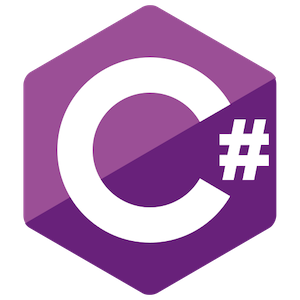I don't really think of myself as a competent programmer or game dev as I know some basic stuff with C and Python. So some input would be appreciated.
use an easier engine for a beginner. UE is very oriented towards enterprise users. Maybe try something like Godot, Gamemaker, Unity, or Stride3d.
Also, c++ sucks for gamedev
Yeah I know.
Reason I'm using It is for job seeking purposes by appearing useful by my corporate overlords unfortunately.
Also, c++ sucks for gamedev
I will never pass up an opportunity to shit on C++, but gamedev is probably one of the things it is most well suited for. Definitely not for high level jobs like the actual game logic, but a game consists of a whole stack of technologies, from the OS, to the game engine, to game logic, to asset pipelines. Then there are challenges like porting to various platforms, or integrating native libraries (say, you need to use sqlite for save files and the engine doesn't include anything like that). Once a project reaches a certain level of complexity, there are almost certainly things you are going to want to dive into the engine to fix (or rip out), and that almost universally means C++. Spend as little time as possible doing it, but don't be afraid to use it where you need it.
presumably, the OP wouldn't be doing dev work on the engine. Sure, c++ code is pretty good for that area of dev, but for game logic you want something higher level and easier to work with, and can compile relatively fast.
Humble bundle regularly puts out asset bundles and educational bundles for UE which are great ways to get a lot of assets affordably, as well as useful tutorials.
The UE documentation is pretty great, and they have some tutorials you can download for free from the unreal marketplace which will teach you the basics. There are a lot of good YouTubers with free tutorials as well.
I would also suggest getting used to sequencer and focusing on animation as it is a fun way to get comfortable with the engine, and has a lot of market value for jobs. Games need animation, but also movies, shows, music experiences (the Vegas sphere is all UE), fashion, automotive industry, and more.
Ey thanks dude. I really appreciate It. I am more on the animation side of things so I hope all goes well.
Already found some tutorials and all.
Check out William Faucher's lighting tutorial on YT (and his other content is very useful as well). If you can get good at lighting and creating cinematic looking shots it really goes a long way to making any animation look higher quality.
Never be afraid of taking a shortcut to make something that barely works instead of making a super elegant solution from the start. Trying to make something perfect right off the bat is a quick way to lose a lot of time working on something that you'll probably have to change later when other parts of the design change.
You know what, I've thought about it a little, and I think there's something that's related to my advice and even more important: the most dangerous place for a project is when it feels like it's less than 5% done, and that place is even riskier if it feels like you've spent a lot of time to get it there. If you're soloing a big project your main concern should be motivating yourself to keep going at it, and the best way to do that is doing low effort, high value tasks. The things that you can get done in less than one day that will catapult your project forward, like working on the fundamentals of the gameplay loop, getting some basic levels in so you can start working on the stuff you'll fill the levels with, that type of thing. You shouldn't spend more than one day (unless you're working only like, 1 or 2 hours a day) on any given individual part of the project in the initial stages because it will feel like you're getting nowhere.
I'm a hobby dev that's used SpringRTS and Godot, my advice when starting out is to scale down as low as you can on your first project. I don't know how UE is for 2D, but think like, a pong clone or snake clone. Games usually involve teams of people, lots of them experienced and specialized in modeling or textures or rigging or shaders or scripts or animation.
Don't take a big bite that's going to have you learning a dozen new things at once. Just start with enough that your game can launch, receive inputs, and track score. Then try adding some more complicated rules, like power ups for snake, or different balls with different physics for pong.
Just getting simple things to work the way you want will give you the dopamine to continue. :)
Also I recommend git and gitlab for version control, that way you can play around and if something breaks you can revert to a working version.



